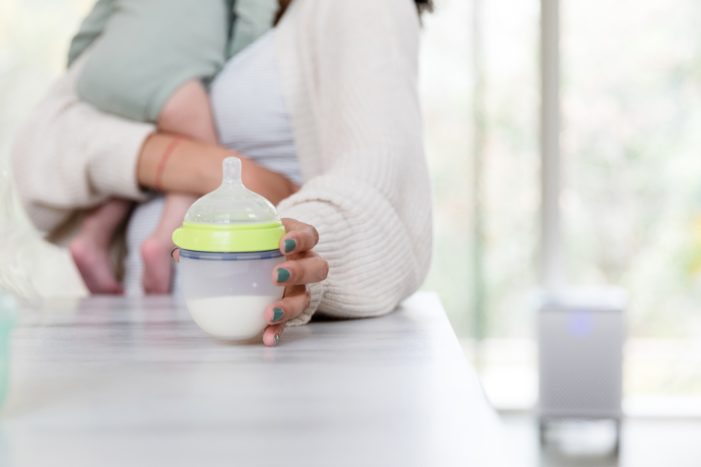FDA Did Not Promptly Investigate Formula Plant Contamination Reports

The U.S. Food and Drug Administration (FDA) is under fire after failing to promptly investigate whistleblower safety complaints at the Abbott Nutrition formula plant. Whistleblower complaints were filed in October 2021, but the FDA did not close down the plant until February after four babies contracted serious bacterial infections, two of whom died. Closure of the plant has largely contributed to a nationwide formula shortage that has left hundreds of thousands of parents scrambling to feed their newborn infants and young children.1
It has been reported that the October 2021 34-page whistleblower report on formula contamination at the Abbott plant never reached the top official in charge of food safety. FDA deputy commissioner Frank Yiannas stated that this is a structural issue within the FDA and that he continues to be cut out of the FDA’s oversight of the Abbott facility. After learning of the issue, Yiannas began working on a corrective action plan in February 2022 but was reportedly told to stand down by then acting FDA commissioner Janet Woodcock.2
Foodborne illness attorney Bill Marler stated:
The ignoring of the whistleblower complaint is just stunning to me and underscores the problems with how the FDA is structured.2
U.S. Lawmakers Grill FDA Commissioner, Say Slow Response Due to ‘Corporate Greed and Consolidation’
Last week, U.S. lawmakers questioned recently appointed FDA commissioner Robert Califf, MD over the matter, calling the agency’s response a “dereliction of duty.” Rep. Rosa DeLaura of Connecticut stated:
The shortage was caused in large part by the lack of action by the FDA and by corporate greed and consolidation.1
The whistleblower complaint against the Abbott Nutrition plant cited numerous safety violations, including falsifying records and failing to properly test the formula before releasing it to the public. The complaints were filed in October but the plant was not shut down until February. Abbott stated that there is no conclusive evidence that the contamination originated at its plant.2
FDA Commissioner Refuses to Comment on Delay in Response Time
Dr. Califf denied further commentary on why it took the FDA so long to investigate. He stated that the formula shortage issue existed before the Abbott plant was closed, citing both COVID-19 and the Russia-Ukraine war as reasons for the supply chain disruption.
Rep. Mark Pocan of Wisconsin criticized Dr. Califf for failing to comment on the issue, stating:
It’s not acceptable to say you just can’t comment on it. This is a problem I’ve seen over and over with the FDA. You guys aren’t good at communicating.
Abbott Formula Plant Has Had Food Safety Issues in the Past
Four companies in the United States–Abbott, Mead Johnson Nutrition, Nestle and Perrigo–produce an estimated 98 percent of U.S. baby formula.3 This market domination leads to massive supply chain disruptions if one of the four companies goes offline, as evidenced by the current crisis.
This is not the first food safety problem for Abbott. In 2010, the Abbott facility, located in Sturgis, Michigan, issued a recall on Similac formula after beetles and beetle larvae were found in the product. During a routine inspection in 2019, FDA inspectors determined that the company had found the potentially deadly pathogen cronobacter, a gram-negative bacteria, in its products and found plant workers were not doing adequate pathogen testing prior to distribution. One infant who consumed Similiac suffered a seizure that was later linked to cronobacter. Despite these findings, the FDA closed the investigation with no restrictions placed on the facility.2
FDA Cracks Down on European Imported Formulas Amidst Crisis
For years, parents have turned to buying European-made baby formulas, such as the brands HiPP and Holle, as a healthier alternative to American-made powdered formulas. European regulatory agencies have more stringent food guidelines, which includes banning corn syrup that is a main ingredient in many U.S. based formulas. Some parents have cited less digestive upset and colic when their infants used the European formulas.4
Despite the US formula shortage, in recent months, FDA officials have moved to crack down on European formula importations, citing concern that the European formulas did not go through the FDA approval process. One mother reported that she had nearly $700 worth of formula destroyed by U.S. customs agents in the middle of the formula shortage.5
If you would like to receive an e-mail notice of the most recent articles published in The Vaccine Reaction each week, click here.
Click here to view References:
No comments:
Post a Comment